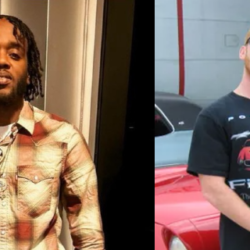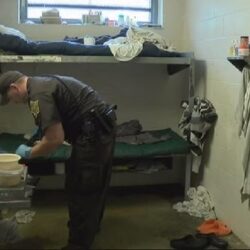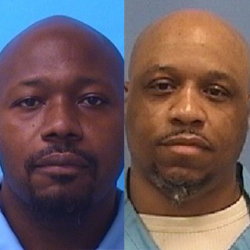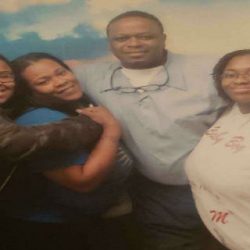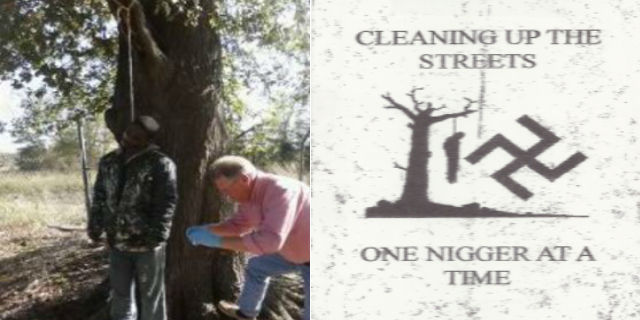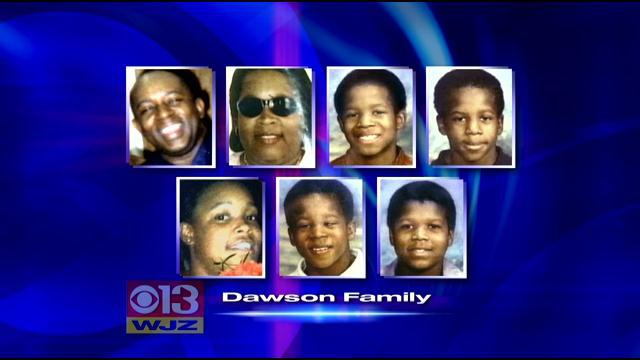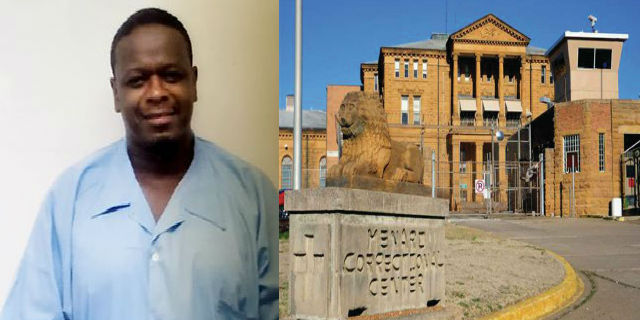Nyamodi Youth Case Points To Systemic Racism In North Carolina: Jailed Teen’s Mother Life May Be In Jeopardy
Posted by David Adams on March 27th, 2014
For some people the image of being locked up in a caged jail cell is simply a concept where the very worst of mankind are suppose to dwell for conduct intolerable throughout civilization, and in many instances such a place is justified for those who have committed the most heinous acts against society. The unfortunate reality is that the American criminal justice system is flawed. Far too many defendants who find themselves embroiled in criminal cases are being incarcerated for crimes they are in fact not responsible for having committed. The disparity of defendants placed in such an awkward position while having to fight tooth and nail to regain their freedom is disproportionately weighed heavily against young black defendants, and in many instances those charged with prosecuting criminals are well aware that culpable evidence against many defendants of color doesn’t exist.
Rather than do the right thing and set these youth free, a systemic culture of suppressing exculpatory evidence which exonerate many of these defendants has become the order of the day by prosecutors who see black defendants as subhuman, and conspire to wrongfully convict defendants of color solely on the premise of race. Also, in southern states like North Carolina, such a culture of malicious prosecution isn’t limited to just the DA’s office, but has far reaching elements of corruption that extend to the very apex of some state’ justice systems, and often include judges as well as defense lawyers. The disadvantage of being a black man facing criminal charges in American has always depicted an unwritten rule that a black man is guilty of having committed a crime for which he is charged, until otherwise proven innocent.
Although pundits may argue that my perspective isn’t accurate, I’ll offer the plethora of wrongfully convicted black men who emerge within media regularly after being set free decades later for crimes which evidence proves that they were innocent of committing all along, as a prime example to support just how justice often fails black defendants. The suppression of exculpatory evidence doesn’t simply end at the threshold of prosecutorial misconduct, but rather other methods are being utilized to pressure, ware down, and coerce black defendants into accepting some sort of plea agreement to secure conviction of defendants who are clearly innocent. Regardless of the circumstance that lands criminal defendants of color in the seat of prosecutorial scrutiny, the uneven playing field along with the rules remain the same. A tremendous upheaval to regain liberty from the American injustice systems typically follows after the onset of purported criminality.
The case of young Shannon Nyamodi who was charged with shooting a woman in the face at point blank range and robbing her of nearly $65,000.00 dollars in Youngsville, North Carolina, is a textbook case study of the unfairness of that state’s justice system. Often times criminal cases of this magnitude result in police authorities fabricating or doctoring investigative reports, to frame or direct suspicion upon defendants when they know evidence supporting their exonerance exist. Also, witness statements are frequently omitted from investigations that point to other potential suspects, but the unexplained premise for charging innocent blacks while allowing actual perpetrators to go free is simply a phenomenon. Many observers resolve to blaming racism as the ruling factor in many of these instances. However, the multi billion dollar American Prison Industrial Complex may also be a driving force behind the injustices committed against defendants of color charged with a crime.
In the Nyamodi case, the various layers of exculpability towards his innocence are frightening considering the youth has been locked up for over nineteen months without a trial. In any criminal case the typical variables necessary to obtain a conviction are the suspect’s motive, established evidence linking them to the crime, and potential supporting witness testimony which ties it all together. When any or all of these variables aren’t present in criminal cases the probability of securing a conviction diminishes drastically. Unfortunately for Shannon Nyamodi the case file at the Franklin County Courthouse is void of all of these variables, but he remains locked up charged with felony crimes, and despite the surviving victim having previously stated (according to police records) that she didn’t know who her assailant was.
TPC has brought many of the disturbing issues related to Shannon Nyamodi’s case to the world with supporting documentation that offers a glimpse into the North Carolina criminal justice system. Perhaps the most compelling evidence of a systemic problem can be seen in established documentation by North Carolina’s superior court, in which preprinted forms are being utilized to warehouse criminal defendants, or “hide people”, as the Franklin County Clerk of Courts has admitted. In Franklin County at least, it appears that a judicial climate exist where a common practice of removing criminal cases from the court’s docket system without sufficient grounds to prosecute cases, has eliminated the very principles of due process guaranteed under the law through the U.S. Constitution, and is being replaced with an adjunct culture of injustice to wrongfully convict innocent people. If the courts give prosecutors unyielded wide discretion in determining when criminal cases are to be prosecuted, while a defendant’s liberty has been taken, justice is denied, and such an action results in defendants serving a sentence of infinity without actually having ever been convicted of crimes for which they have been charged. Take a look at the subject preprinted form being utilized in North Carolina’s Superior Court below:
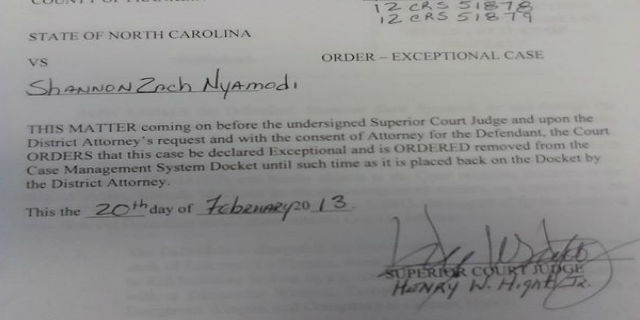
In what may be an unprecedented attack on the 6th and 14th amendments of the U.S. Constitution, the state of North Carolina (who has a repealed speedy trial statue) Superior Courts are utilizing a practice of allowing prosecutors wide discretion in determining when a criminal defendant has their day in court, while trampling civil rights requiring due process under the law.
While such a practice may not be solely unique to the Shannon Nyamodi case, the lack of public access to culpable evidence against him reveals how blatant illegalities within the justice system in North Carolina actual is. Assuming that prosecutors actually have very damaging evidence pointing to the guilt of Shannon Nyamodi and other accused defendants just like him, it’s confusing why the DA’s office would want to prolong justice, and not bring these defendants to trial. The general consensus in North Carolina is that the state’ criminal justice process is simply slow, as if such a reality is acceptable when the constitution has established law prohibiting states from throwing citizens in jail for an indefinite period of time without a trial. This unlawful practice is a direct infringement upon the civil rights of criminal defendants in North Carolina, and may penetrate the crust of a disturbing culture of injustice enacted primarily upon defendants of color, that predates the civil rights era.
The volume of rather peculiar circumstances compiled in the Nyamodi case undresses the injustice that has landed this young defendant in a county jail for nearly two years. A victim who survived an extremely violent attack that she initially couldn’t identify anyone as her assailant, witness accounts describing a person of another ethnicity having flee from the scene shortly after the shooting, and the purported evidence against Shannon Nyamodi which has never been made public all collectively lays the foundation for a classic frame up of an innocent black man. Additionally, the heinous injustice against this defendant is of a nature so disturbing, lawyers with knowledge of the case file have conveyed publicly that an arrest warrant for Shannon Nyamodi should have never been issued in this crime. Also, Nyamodi appears to have been linked to this crime based on mere hearsay alone even before evidence was gathered, which all collapsed when investigators discovered that a witness had lied to police. The authorities had made such a discovery with ample time to dismiss charges against Shannon Nyamodi, but chose a destructive course to charge and indict him for the crime anyway. The establishment of exculpatory evidence and the suppression of it by police and prosecutors isn’t just a complete miscarriage of justice in the Nyamodi case, but underscores how the law of the land seems to dissipate when black people are charged with a crime.
It doesn’t require rocket science to understand that some other dynamic is at play in this young defendants case, and the manner he is being held in jail along with his family being denied access to him, exposes some of the tactics frequently used to force black defendants into admitting to having committed a crime they are in fact not responsible for. With Shannon Nyamodi being held in an isolated housing condition which limits his movement to only one hour a day and minimum access to others, serious concern has developed regarding his mental health. It’s widely believed that authorities are deliberately imposing such sanctions upon him to avoid ever having to take his criminal case to trial. A forced confession from a defendant under duress to simply get out of mentally exhausting living conditions would also alleviate the prosecutor’s burden of proving the youth actually committed this crime. Therefore, culpable or exculpatory evidence of any kind would be insignificant because a judge nor a jury would never see it.
Moreover, serious concern for the physical safety of Shannon Nyamodi’s mother has always been a major concern. Ms. Elizabeth Crudup who has been working tenaciously to secure her son’s freedom may have been targeted by police within her home town. On March 21, 2014 she experienced a violent encounter with a Dunn, North Carolina police officer where she was beaten for what amounts to a mere traffic violation. The incident was witnessed by various citizens in the town, and resulted in the mother’s clothing coming unraveled. For some strange reason, she was transported to another town outside of Dunn and booked for resisting arrest charges. While in transit to the Harnett County Sheriff Department, the arresting officer taunted the mother about her son’s criminal case. The cop asked her “do you think you are some kind of lawyer, is that it? You think your a lawyer?” Since Crudup had never had an encounter with this officer before, he apparently knew something about her, and such a statement could only have been an inference to Shannon whose case she has filed various documents. To further complicate that entire ordeal, police had Crudup’s car (which was legally parked in the parking lot of a local establishment) towed to an impound yard completely out of Harnett County.
Crudup’s vehicle had valid registration and insurance. The fact that the car was even towed at all suggest that it was an act by police to further harass her. More importantly though, where the car was actually towed to is extremely unnerving. The car was taken to Benson, North Carolina, and locals there say it’s any area within the state few blacks venture, because it’s in Johnston county, a known foothold for the United Klu Klux Klans of America. Research by TPC has discovered that the county has a famous billboard sign posted at it’s northern county line which greets commuters entering that jurisdiction. See an image of the sign below:

A disturbing sign entering the northern part of Johnston County, North Carolina.
Against the advise from many who have been working closely with Ms. Crudup pertaining to her son’s criminal case, she went to the location where her car was towed. Crudup explains that she needed to retain her purse which contains important personal items. She describes the trip there as an extremely terrifying experience. The route she took was in fact the quickest way to get there, but she says it was extremely rural with mostly swamp land. It was a place that she vowed to never return, and she very well may have a valid reason for coming to such a conclusion. Since the area appeared to have very little population, Crudup and those who drove to Benson with her believed that had they encountered an emergency they would have been stranded, and anything could have happened to them, especially in a jurisdiction which has very tensed social climate with known hostility toward people of color. Take a look at a view of where her car was towed below:
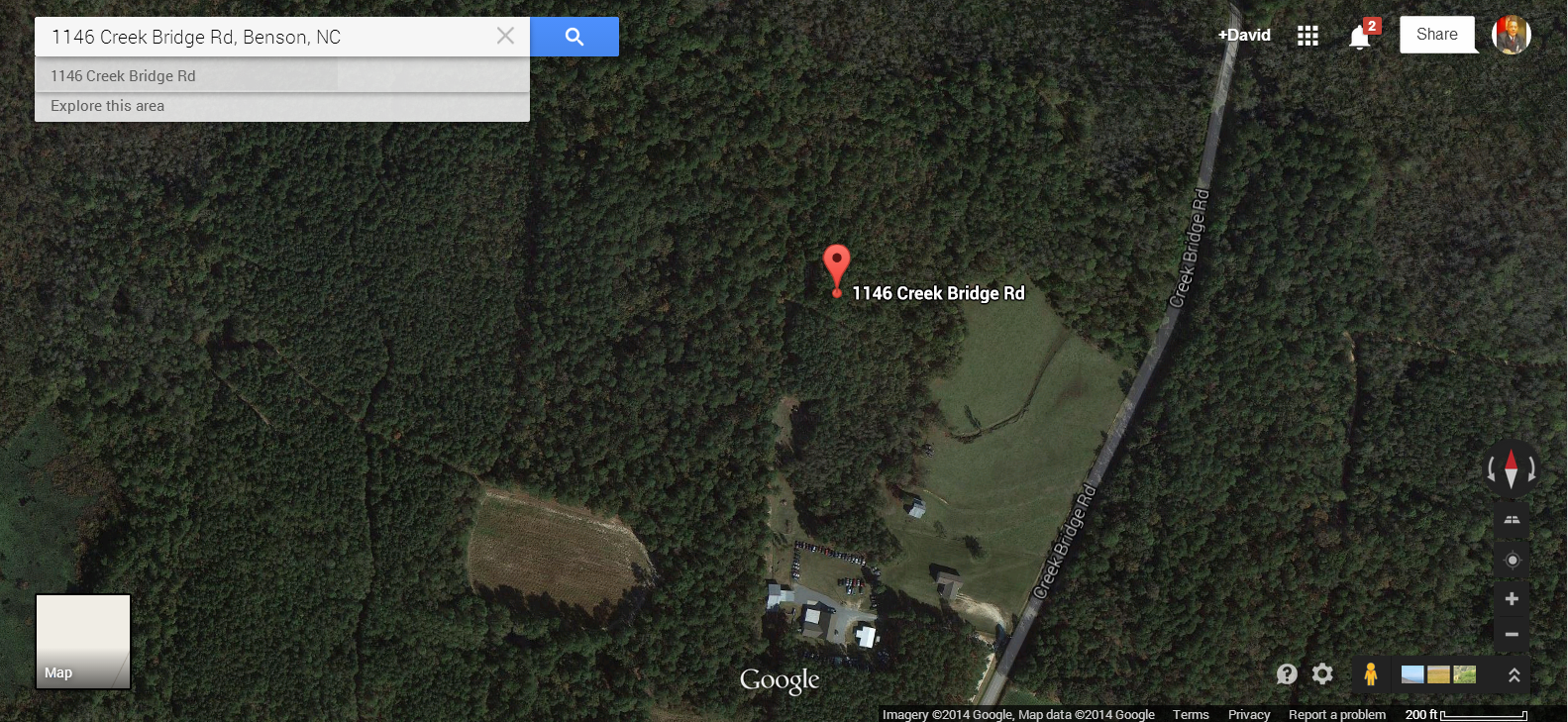
Click image to enlarge.
By virtue of the county where Ms. Crudup’s car was towed, there was concern from the very start that serious trouble could be awaiting her when she went to retrieve the vehicle. Now after having obtained knowledge of what the landscape actual looks like in that neck of the woods, concerns for her personal safety have heightened. Crupdup and her friend also told TPC that as they left the impound yard and headed back toward the town of Dunn, a state trooper went flying pass them in the direction they had just came. looking at the geography, it’s very clear that not much is going on out there. Crupdup says they believed someone may have called the state police to alert them of their presence in the area. They also conveyed that they believed the state cop had gone to the impound yard they went to because nothing else is out that way, and the trooper came directly behind them a few minutes later. They also said that he followed them for about 7-8 miles. their perception and account of this ordeal may be just inherited fear blacks manifest based on the history of the KKK, but she has justification for adopting such a mind set. Afterall, the women had recently been beat up by police and had her car towed to one of the most racist counties in the state. It the very least, the account she describes appears very coincidental.
Since no explanation for why her car was towed has never been offered, it raises concern as to whether some sort of message was being sent to her. She has been advocating her son’s case, and has exposed serious flaws in the criminal justice process along the way. Having her car towed all the way out in such a remote place, and circumventing at least other impound yards within her own county appears to have been deliberate. Anything could have happened to her out there and she could have never been heard from again. It wouldn’t have been the first time that a black person went missing in a known KKK community. Many believe that her life may be in danger and the necessary precautions must be taken to insure her personal safety. It’s an ever evolving case which points to systemic racism in North Carolina and we must continue to watch to insure that justice prevails for this family.
To be Continued ..
The People’s Champion
I’m David Adams
A Self proclaimed geek, Sympathizer for the homeless, Social Change Advocate, Crime Blogger, Promoter of Awareness for Missing and Exploited Children, and a mobile technology enthusiast. A recognized Journalist and Human Interest Writer championing the plight of the masses whom are without a voice of their own.
More Posts - Website
Follow Me:





For some people the image of being locked up in a caged jail cell is simply a concept where the very worst of mankind are suppose to dwell for conduct intolerable throughout civilization, and in many instances such a place is justified for those who have committed the most heinous acts against society. The unfortunate reality is that the American criminal justice system is flawed. Far too many defendants who find themselves embroiled in criminal cases are being incarcerated for crimes they are in fact not responsible for having committed. The disparity of defendants placed in such an awkward position while having to fight tooth and nail to regain their freedom is disproportionately weighed heavily against young black defendants, and in many instances those charged with prosecuting criminals are well aware that culpable evidence against many defendants of color doesn’t exist.
Rather than do the right thing and set these youth free, a systemic culture of suppressing exculpatory evidence which exonerate many of these defendants has become the order of the day by prosecutors who see black defendants as subhuman, and conspire to wrongfully convict defendants of color solely on the premise of race. Also, in southern states like North Carolina, such a culture of malicious prosecution isn’t limited to just the DA’s office, but has far reaching elements of corruption that extend to the very apex of some state’ justice systems, and often include judges as well as defense lawyers. The disadvantage of being a black man facing criminal charges in American has always depicted an unwritten rule that a black man is guilty of having committed a crime for which he is charged, until otherwise proven innocent.
Although pundits may argue that my perspective isn’t accurate, I’ll offer the plethora of wrongfully convicted black men who emerge within media regularly after being set free decades later for crimes which evidence proves that they were innocent of committing all along, as a prime example to support just how justice often fails black defendants. The suppression of exculpatory evidence doesn’t simply end at the threshold of prosecutorial misconduct, but rather other methods are being utilized to pressure, ware down, and coerce black defendants into accepting some sort of plea agreement to secure conviction of defendants who are clearly innocent. Regardless of the circumstance that lands criminal defendants of color in the seat of prosecutorial scrutiny, the uneven playing field along with the rules remain the same. A tremendous upheaval to regain liberty from the American injustice systems typically follows after the onset of purported criminality.
The case of young Shannon Nyamodi who was charged with shooting a woman in the face at point blank range and robbing her of nearly $65,000.00 dollars in Youngsville, North Carolina, is a textbook case study of the unfairness of that state’s justice system. Often times criminal cases of this magnitude result in police authorities fabricating or doctoring investigative reports, to frame or direct suspicion upon defendants when they know evidence supporting their exonerance exist. Also, witness statements are frequently omitted from investigations that point to other potential suspects, but the unexplained premise for charging innocent blacks while allowing actual perpetrators to go free is simply a phenomenon. Many observers resolve to blaming racism as the ruling factor in many of these instances. However, the multi billion dollar American Prison Industrial Complex may also be a driving force behind the injustices committed against defendants of color charged with a crime.
In the Nyamodi case, the various layers of exculpability towards his innocence are frightening considering the youth has been locked up for over nineteen months without a trial. In any criminal case the typical variables necessary to obtain a conviction are the suspect’s motive, established evidence linking them to the crime, and potential supporting witness testimony which ties it all together. When any or all of these variables aren’t present in criminal cases the probability of securing a conviction diminishes drastically. Unfortunately for Shannon Nyamodi the case file at the Franklin County Courthouse is void of all of these variables, but he remains locked up charged with felony crimes, and despite the surviving victim having previously stated (according to police records) that she didn’t know who her assailant was.
TPC has brought many of the disturbing issues related to Shannon Nyamodi’s case to the world with supporting documentation that offers a glimpse into the North Carolina criminal justice system. Perhaps the most compelling evidence of a systemic problem can be seen in established documentation by North Carolina’s superior court, in which preprinted forms are being utilized to warehouse criminal defendants, or “hide people”, as the Franklin County Clerk of Courts has admitted. In Franklin County at least, it appears that a judicial climate exist where a common practice of removing criminal cases from the court’s docket system without sufficient grounds to prosecute cases, has eliminated the very principles of due process guaranteed under the law through the U.S. Constitution, and is being replaced with an adjunct culture of injustice to wrongfully convict innocent people. If the courts give prosecutors unyielded wide discretion in determining when criminal cases are to be prosecuted, while a defendant’s liberty has been taken, justice is denied, and such an action results in defendants serving a sentence of infinity without actually having ever been convicted of crimes for which they have been charged. Take a look at the subject preprinted form being utilized in North Carolina’s Superior Court below:

In what may be an unprecedented attack on the 6th and 14th amendments of the U.S. Constitution, the state of North Carolina (who has a repealed speedy trial statue) Superior Courts are utilizing a practice of allowing prosecutors wide discretion in determining when a criminal defendant has their day in court, while trampling civil rights requiring due process under the law.
While such a practice may not be solely unique to the Shannon Nyamodi case, the lack of public access to culpable evidence against him reveals how blatant illegalities within the justice system in North Carolina actual is. Assuming that prosecutors actually have very damaging evidence pointing to the guilt of Shannon Nyamodi and other accused defendants just like him, it’s confusing why the DA’s office would want to prolong justice, and not bring these defendants to trial. The general consensus in North Carolina is that the state’ criminal justice process is simply slow, as if such a reality is acceptable when the constitution has established law prohibiting states from throwing citizens in jail for an indefinite period of time without a trial. This unlawful practice is a direct infringement upon the civil rights of criminal defendants in North Carolina, and may penetrate the crust of a disturbing culture of injustice enacted primarily upon defendants of color, that predates the civil rights era.
The volume of rather peculiar circumstances compiled in the Nyamodi case undresses the injustice that has landed this young defendant in a county jail for nearly two years. A victim who survived an extremely violent attack that she initially couldn’t identify anyone as her assailant, witness accounts describing a person of another ethnicity having flee from the scene shortly after the shooting, and the purported evidence against Shannon Nyamodi which has never been made public all collectively lays the foundation for a classic frame up of an innocent black man. Additionally, the heinous injustice against this defendant is of a nature so disturbing, lawyers with knowledge of the case file have conveyed publicly that an arrest warrant for Shannon Nyamodi should have never been issued in this crime. Also, Nyamodi appears to have been linked to this crime based on mere hearsay alone even before evidence was gathered, which all collapsed when investigators discovered that a witness had lied to police. The authorities had made such a discovery with ample time to dismiss charges against Shannon Nyamodi, but chose a destructive course to charge and indict him for the crime anyway. The establishment of exculpatory evidence and the suppression of it by police and prosecutors isn’t just a complete miscarriage of justice in the Nyamodi case, but underscores how the law of the land seems to dissipate when black people are charged with a crime.
It doesn’t require rocket science to understand that some other dynamic is at play in this young defendants case, and the manner he is being held in jail along with his family being denied access to him, exposes some of the tactics frequently used to force black defendants into admitting to having committed a crime they are in fact not responsible for. With Shannon Nyamodi being held in an isolated housing condition which limits his movement to only one hour a day and minimum access to others, serious concern has developed regarding his mental health. It’s widely believed that authorities are deliberately imposing such sanctions upon him to avoid ever having to take his criminal case to trial. A forced confession from a defendant under duress to simply get out of mentally exhausting living conditions would also alleviate the prosecutor’s burden of proving the youth actually committed this crime. Therefore, culpable or exculpatory evidence of any kind would be insignificant because a judge nor a jury would never see it.
Moreover, serious concern for the physical safety of Shannon Nyamodi’s mother has always been a major concern. Ms. Elizabeth Crudup who has been working tenaciously to secure her son’s freedom may have been targeted by police within her home town. On March 21, 2014 she experienced a violent encounter with a Dunn, North Carolina police officer where she was beaten for what amounts to a mere traffic violation. The incident was witnessed by various citizens in the town, and resulted in the mother’s clothing coming unraveled. For some strange reason, she was transported to another town outside of Dunn and booked for resisting arrest charges. While in transit to the Harnett County Sheriff Department, the arresting officer taunted the mother about her son’s criminal case. The cop asked her “do you think you are some kind of lawyer, is that it? You think your a lawyer?” Since Crudup had never had an encounter with this officer before, he apparently knew something about her, and such a statement could only have been an inference to Shannon whose case she has filed various documents. To further complicate that entire ordeal, police had Crudup’s car (which was legally parked in the parking lot of a local establishment) towed to an impound yard completely out of Harnett County.
Crudup’s vehicle had valid registration and insurance. The fact that the car was even towed at all suggest that it was an act by police to further harass her. More importantly though, where the car was actually towed to is extremely unnerving. The car was taken to Benson, North Carolina, and locals there say it’s any area within the state few blacks venture, because it’s in Johnston county, a known foothold for the United Klu Klux Klans of America. Research by TPC has discovered that the county has a famous billboard sign posted at it’s northern county line which greets commuters entering that jurisdiction. See an image of the sign below:

A disturbing sign entering the northern part of Johnston County, North Carolina.
Against the advise from many who have been working closely with Ms. Crudup pertaining to her son’s criminal case, she went to the location where her car was towed. Crudup explains that she needed to retain her purse which contains important personal items. She describes the trip there as an extremely terrifying experience. The route she took was in fact the quickest way to get there, but she says it was extremely rural with mostly swamp land. It was a place that she vowed to never return, and she very well may have a valid reason for coming to such a conclusion. Since the area appeared to have very little population, Crudup and those who drove to Benson with her believed that had they encountered an emergency they would have been stranded, and anything could have happened to them, especially in a jurisdiction which has very tensed social climate with known hostility toward people of color. Take a look at a view of where her car was towed below:

Click image to enlarge.
By virtue of the county where Ms. Crudup’s car was towed, there was concern from the very start that serious trouble could be awaiting her when she went to retrieve the vehicle. Now after having obtained knowledge of what the landscape actual looks like in that neck of the woods, concerns for her personal safety have heightened. Crupdup and her friend also told TPC that as they left the impound yard and headed back toward the town of Dunn, a state trooper went flying pass them in the direction they had just came. looking at the geography, it’s very clear that not much is going on out there. Crupdup says they believed someone may have called the state police to alert them of their presence in the area. They also conveyed that they believed the state cop had gone to the impound yard they went to because nothing else is out that way, and the trooper came directly behind them a few minutes later. They also said that he followed them for about 7-8 miles. their perception and account of this ordeal may be just inherited fear blacks manifest based on the history of the KKK, but she has justification for adopting such a mind set. Afterall, the women had recently been beat up by police and had her car towed to one of the most racist counties in the state. It the very least, the account she describes appears very coincidental.
Since no explanation for why her car was towed has never been offered, it raises concern as to whether some sort of message was being sent to her. She has been advocating her son’s case, and has exposed serious flaws in the criminal justice process along the way. Having her car towed all the way out in such a remote place, and circumventing at least other impound yards within her own county appears to have been deliberate. Anything could have happened to her out there and she could have never been heard from again. It wouldn’t have been the first time that a black person went missing in a known KKK community. Many believe that her life may be in danger and the necessary precautions must be taken to insure her personal safety. It’s an ever evolving case which points to systemic racism in North Carolina and we must continue to watch to insure that justice prevails for this family.
To be Continued ..
The People’s Champion
I’m David Adams
A Self proclaimed geek, Sympathizer for the homeless, Social Change Advocate, Crime Blogger, Promoter of Awareness for Missing and Exploited Children, and a mobile technology enthusiast. A recognized Journalist and Human Interest Writer championing the plight of the masses whom are without a voice of their own.
More Posts - Website
Follow Me:




You can
leave a response, or
trackback from your own site.


 RSS Feed
RSS Feed Twitter
Twitter






 Posted in
Posted in 